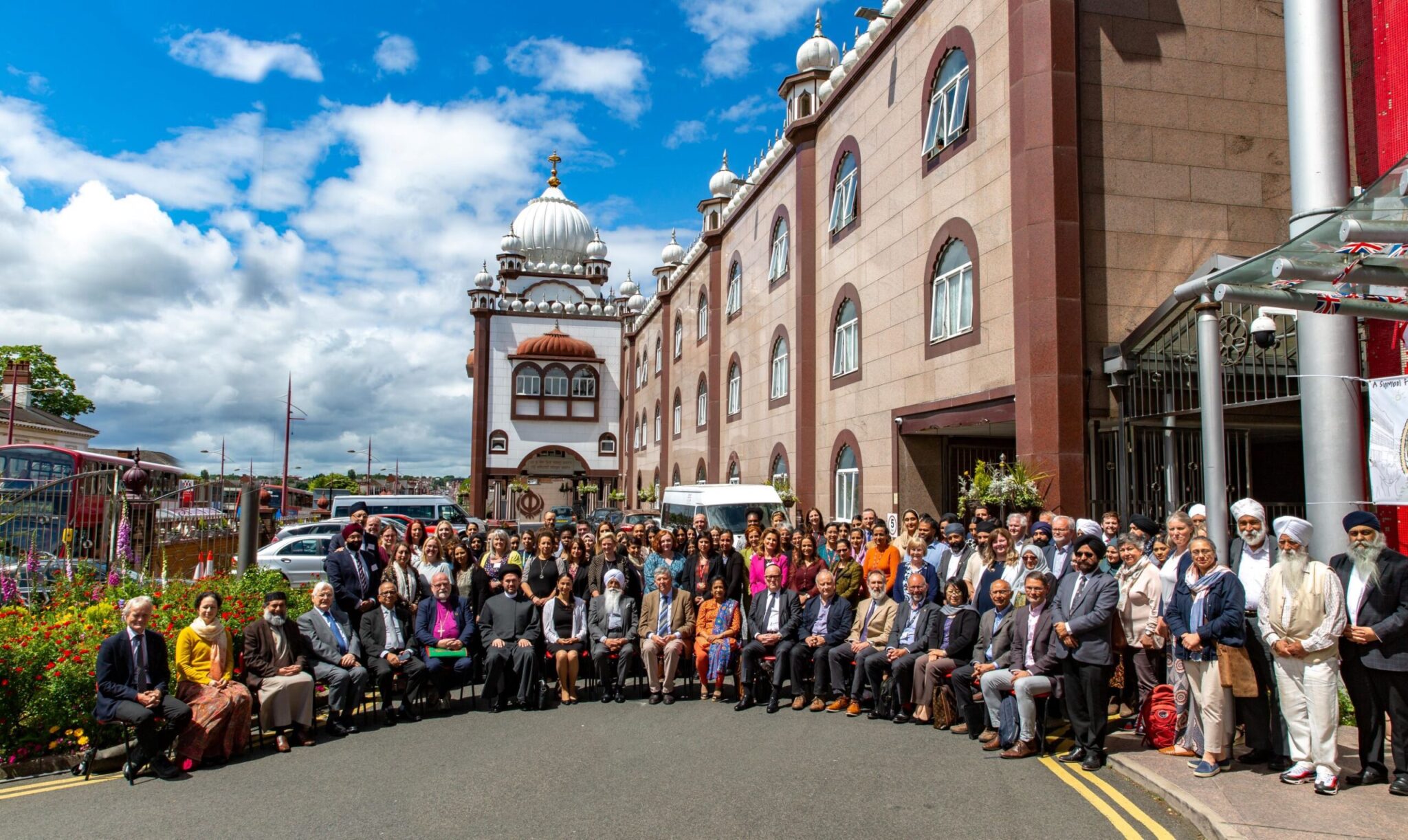European Council of Religious Leaders-Religions for Peace Birmingham Declaration
20220606European Council of Religious Leaders Birmingham Declaration
6 June, 2022
We, the European Council of Religious Leaders, express our extreme gratitude to the Nishkam Sikh community for hosting our first in-person meeting since the Covid pandemic. Coming together we remember, and offer our deepest condolences and prayers, for those that lost their lives to this terrible disease, and those who still suffer.
As a Council of senior religious leaders from the world’s great traditions, our unambiguous message to intergovernmental organisations, national governments, and communities across Europe is that, religious action continues to play a defining role in addressing the biggest challenges we face together in the world today.
We are humble in acknowledging that people of faith are not without flaws, and that religion has sometimes contributed to division and violent conflict within our communities. Yet there are also many examples throughout history of religious leaders, communities, and traditions playing a vital role in preventing and transforming violent conflict, and building reconciliation and peace.
Religious leaders and communities are pursuing dialogue at all levels to end the brutal war in Ukraine, and when the violence eventually ends, religion can and will have an important role to play in the long-term healing and reconciliation process. As we meet there are many faith-based organisations working tirelessly to support refugees in Ukraine and surrounding countries. These people, inspired by their faith, are an example to us all, and we pray for their safety and success. We recognise and honour the huge generosity of religious and secular communities across Europe and the world, giving time and resources to help Ukrainians in their greatest hour of need.
However, there is much more that needs to be done. We encourage governments to mobilise every available resource to ensure the safe passage of women and children refugees, and to prevent the scourge human trafficking. At a time of great turmoil, we take this opportunity to respectfully remind governments in Europe of their responsibilities in preventing and ending violent conflict in other parts of the world. Sales of weapons and munitions fuel violent conflict throughout the world, and it is morally bankrupt for any government (or anyone) to profit from the terrible human suffering caused by war.
As a Council we are determined to do our utmost to support post-conflict peacebuilding and reconciliation, and ensure such terrible conflict never reoccurs. Resources such as the Peace Charter for Forgiveness and Reconciliation, adopted by the global Religions for Peace community at the World Assembly in Lindau in 2019, offers us guidance and wisdom, and will inspire our future work.
With a view to long-term peacebuilding, the ECRL notes the growing body of evidence that educational curricula, systems, and policies based on values, virtues, and ethics, for both pupils and teachers, supports young people in becoming thoughtful, skilful, and responsible global citizens, who are role models in their communities and peacemakers in action.
We see this clearly in the work and schools of faith-based organisations such as the Nishkam Schools Trust, Arigatou International, and the Quakers Peace Education Project – Peacemakers. Given the current environmental crisis, increasing political and social polarisation, and the cost of living crises driving poverty and inequality, we call on European governments not to see values based education as an optional extra, but as a moral imperative to help bring about peace in our world today.
In order for religion to flourish in our societies and communities, people of all religions must be free to practice their religion as their traditions determine. Whilst this sometimes causes contradictions and tensions within and between religious traditions and secular worldviews, we must find ways to negotiate these differences in a respectful and compassionate way, and ensure everyone in our communities feels valued and respected. The historic city of Birmingham is a living example of multi-religious collaboration in action, and we thank the people of Birmingham, and University of Birmingham, for their hospitality.
Religion in its most pure form is peace: achieved through service to others and inspired by our spiritual beliefs. We, the European Council of Religious Leaders, are committed to serving all humanity to the best of our ability, and to take the actions necessary for ending conflict and suffering across Europe, and throughout the world.
The European Council of Religious Leaders
6 June, 2022
